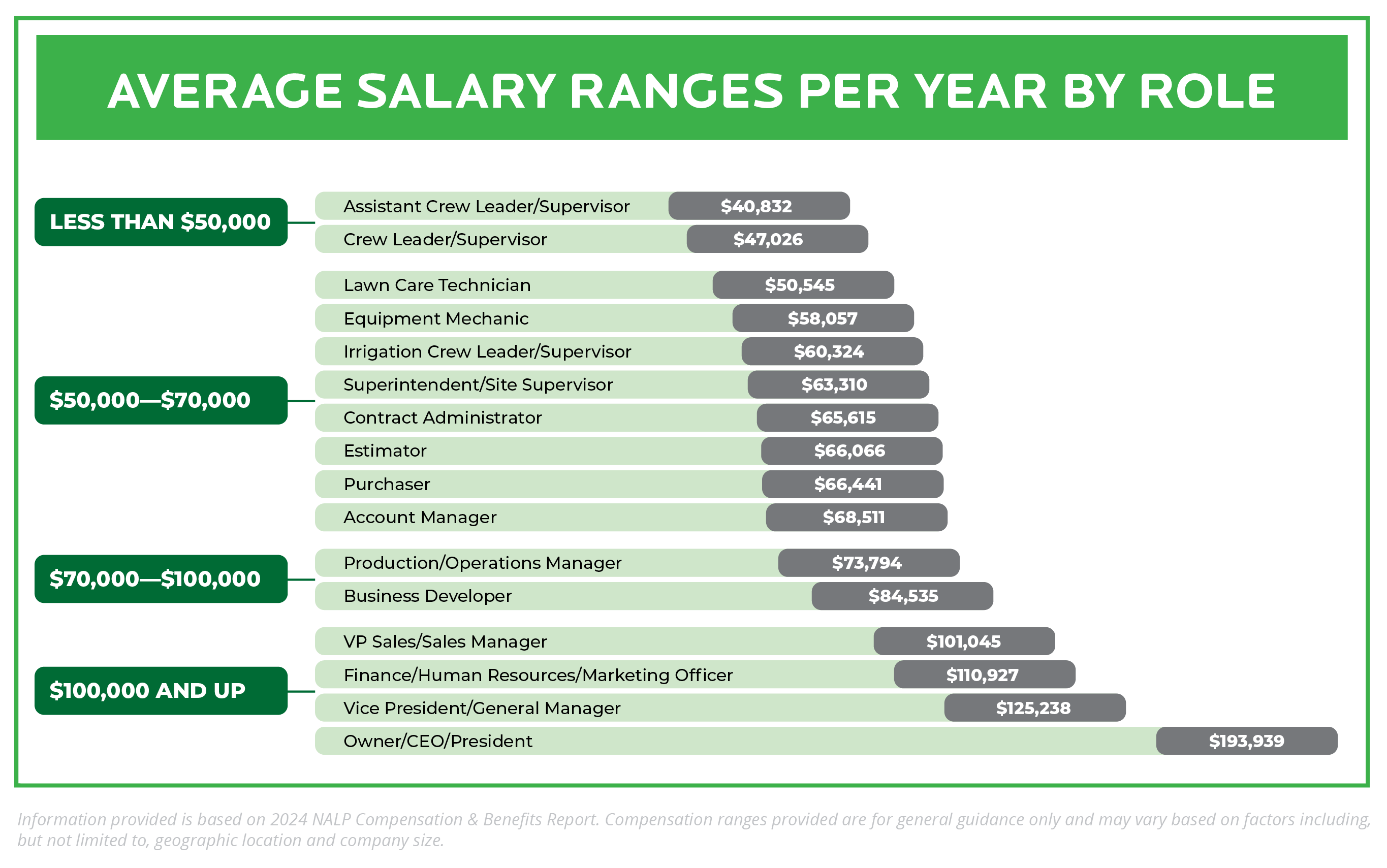Each year the landscape industry hires 300,000 men and women for careers that positively impact families, their communities, and the environment. Professionals are drawn to the field by the opportunity to work outdoors, the chance to work in a people-oriented industry and the desire to make a good living to support themselves and their families.
How are Landscape Professionals Compensated?
One of the most common misconceptions about the professional landscape industry is that it doesn’t pay well. Fortunately for almost one million men and women who work in the industry, that is incorrect! Sure, employees who start in the industry with no relevant experience or education earn entry level wages but those who excel in their initial tasks are rewarded with increasing responsibilities, promotions, and corresponding compensation. Those who come out of college with industry-focused training or those who complete apprenticeships or move up within a company, can expect to have their expertise handsomely rewarded.
Compensation is influenced by business type and size, geographic location, an employee’s experience, etc. In fact, many companies that have looked at the nationwide medians shown by the Bureau of Labor Statistics feel the salary ranges should be much higher noting, for instance, their sales professionals or top executives make in excess of $300,000 annually. In this industry, talent is handsomely rewarded!
Commitment and Expertise is Rewarded
The point is, this is an industry of professionals who use their hands but more importantly, their minds. They are problem solvers. They take initiative. They often interface with customers and clients. Their knowledge is respected and their work is important. Good companies work hard to retain talent and compensation is a big component of employee retention.
Benefit Offerings
Another attractive offering from many companies is their benefits program. For instance, most executives and managers have health insurance and are provided with a retirement plan. Some companies offer employees corporate vehicles or stipends for using personal vehicles. Employers often invest in professional development opportunities to ensure their team members are continuously learning the newest techniques and trends. Industry leaders invest in talent.
When exploring careers in the industry, look at the job you can start today but more importantly, consider the career you can have down the road. The industry offers career paths, not just jobs.








